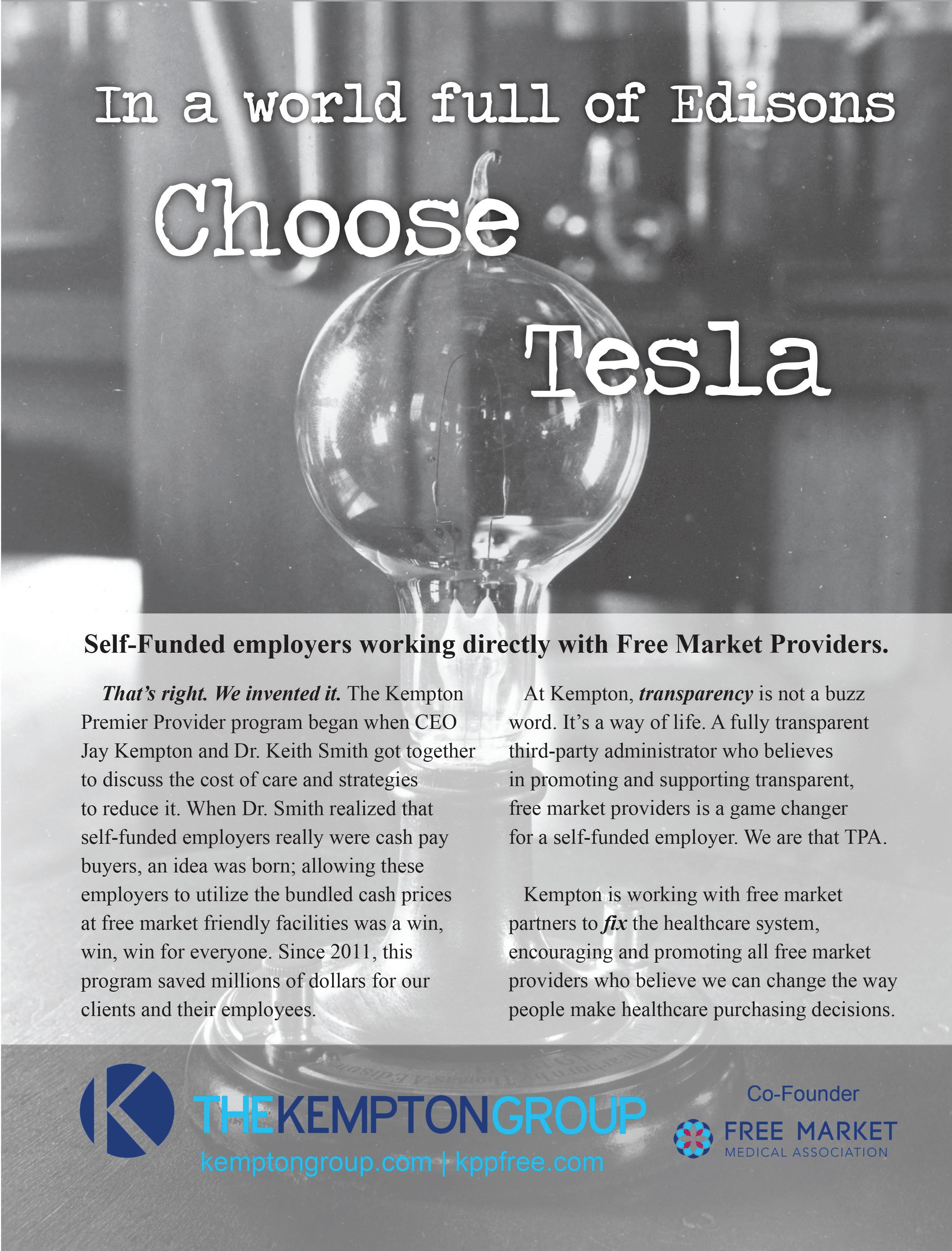by james dunavant
HEALTHCARE
MORE TRANSPARENCY LESS GOVERNMENT
FMMA Executive Director
H E A LT H C A R E : M O R E T R A N S PA R E N C Y, L E S S G O V E R N M E N T
■
JAMES DUNAVANT
6
T
here is a growing public awareness that many of the national problems with healthcare result from a lack of price and quality transparency. President Trump has rightly brought more attention to this problem through recent executive orders and proposed rules to require hospitals and insurers to disclose negotiated “deals” which have traditionally been hidden from individuals and employers. This lack of transparency has no doubt created perverse incentives and cover for healthcare providers to increase cost and enrich the crony hospital systems and big insurance companies. Before we rely too heavily on the federal government to “fix” this mess, let’s not forget that government intervention and regulation in healthcare created this anti-free market phenomenon in the first place. First and foremost, transparency in healthcare is primarily a problem because the majority of consumers of healthcare goods and services rarely CARE about the cost as long as someone else is paying the bill. Our predominantly “fee-for-service” model and third-party payment system are the direct consequence of a long history of government interventions in the market, including employer tax exemptions, Medicare, Medicaid, HMOs, PPOs, ACOs, and all the resulting regulations that have emerged in their wake. The government 6
has intervened to limit the supply of market-based medical services (licensing laws, patent laws, certificate-of-need laws) while artificially stimulating demand (subsidies, tax exemptions, welfare payments). As the 20th century economist Ludwig von Mises said, “Economic interventionism is a self-defeating policy. The individual measures that it applies do not achieve the results sought. They bring about a state of affairs, which—from the viewpoint of its advocates themselves—is much more undesirable than the previous state they intended to alter.” Each government intervention has created more perverse incentives and opportunities for non-transparent interlopers, driving up the cost of healthcare while increasing the profits of the politically-connected. As a result, opportunistic politicians and their economically illiterate constituents call for more government intervention to solve the problems that well-intentioned or outright unscrupulous lawmakers and their corporate lobbyists caused in the first place. The current “private insurance” system that Medicare-for-All advocates want to abolish is actually more of an inefficient government-created and regulated payment system that has little resemblance to true insurance that offers real value for consumers interested in risk management in the midst of economic uncertainty. The issue of transparency has only begun to reach public ShopHealth | Vol. 2 | Issue 3








